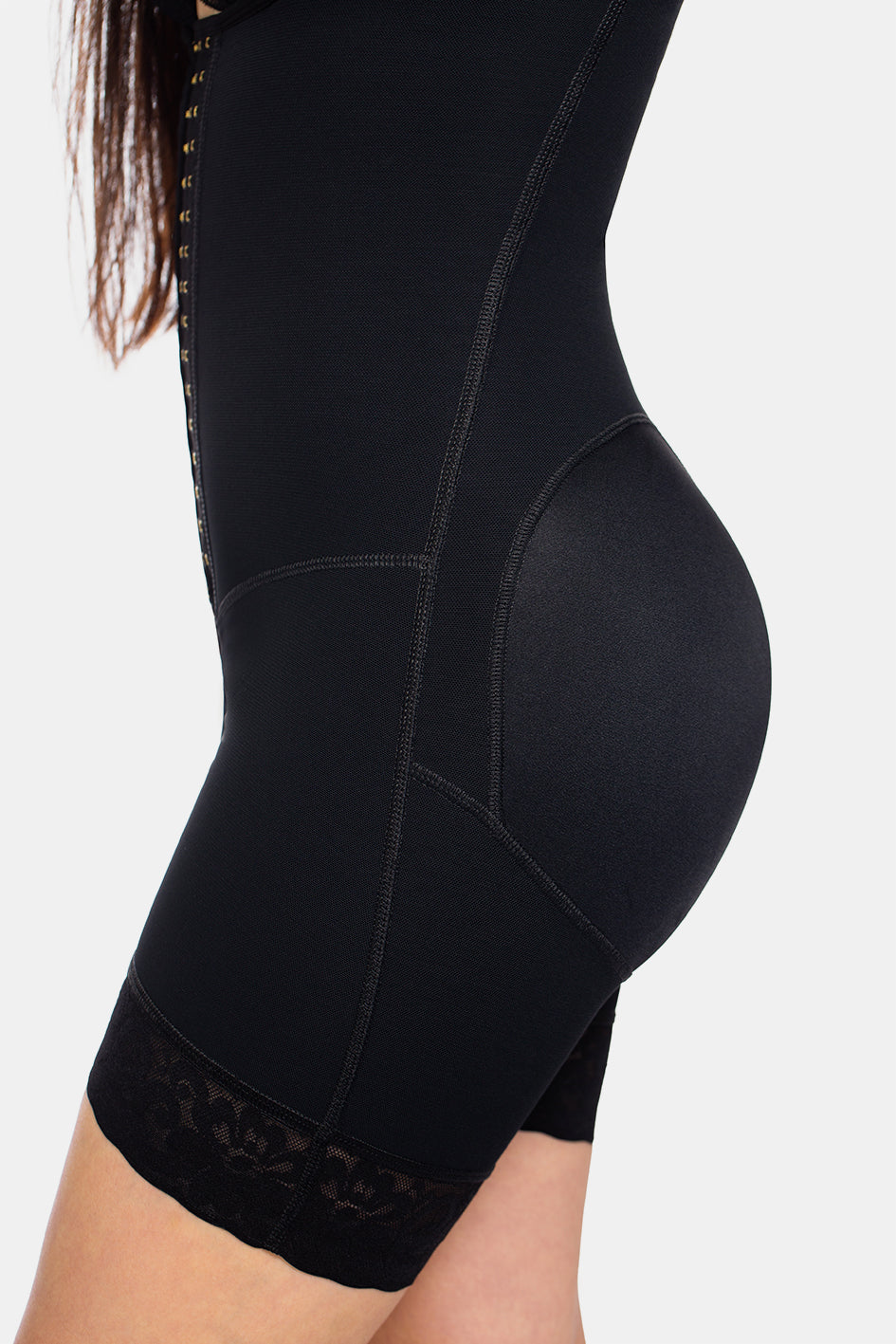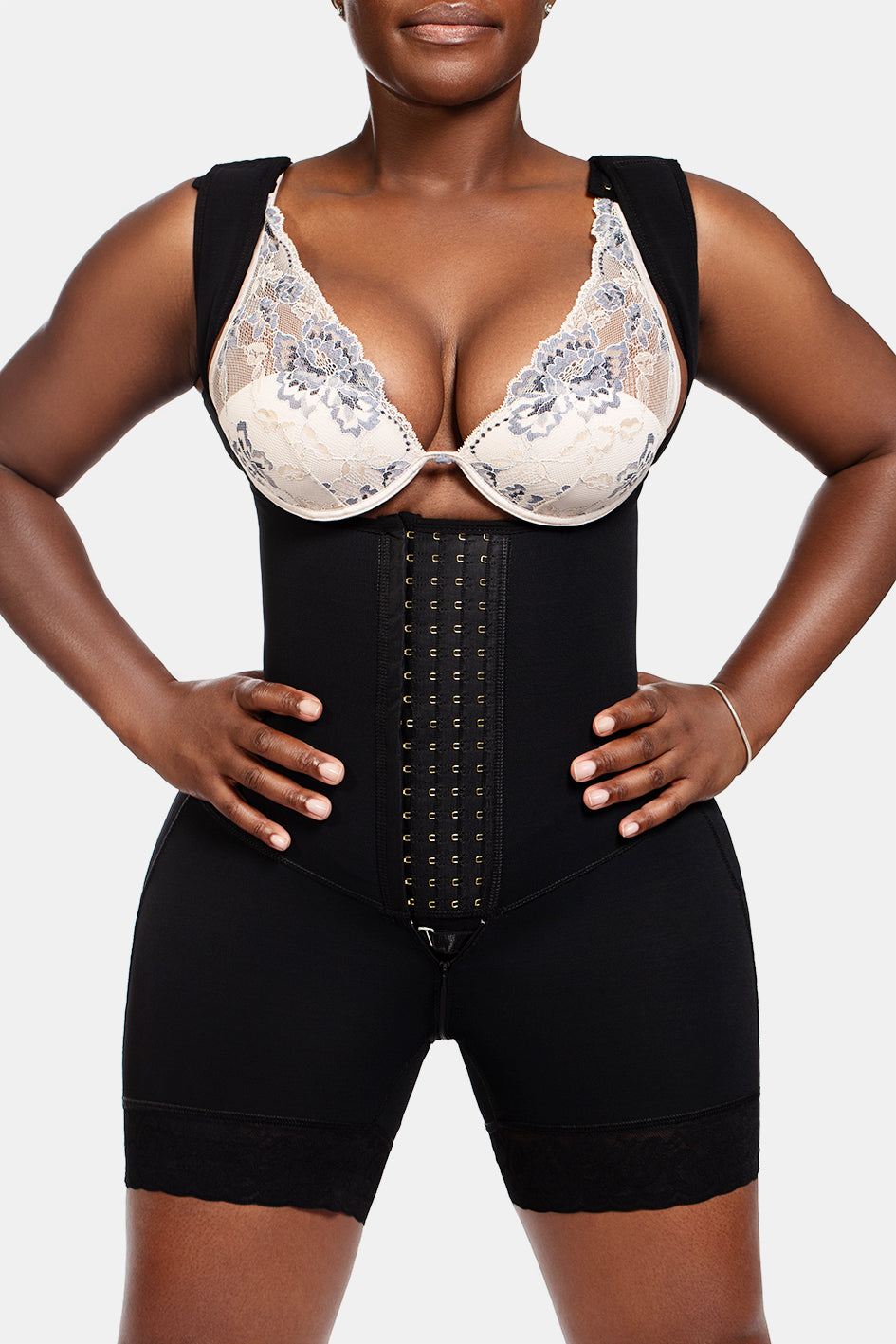
Faja Origins, Purpose, and Comparisons to Compression Garments
In recent years, the word faja has made its way into beauty and post-surgical recovery conversations around the world — but what exactly is a faja, and how is it different from a standard compression garment?
Whether you're new to body contouring, post-surgical aftercare, or just curious about the buzz, this blog will help you understand what a faja really is, where it comes from, and how it stands apart from other types of compression wear.
What Does “Faja” Mean?
The word faja (pronounced fa-ha) is Spanish for "girdle" or "wrap", historically used to describe a tight band worn around the waist or torso for shaping or support. While girdles have existed in many cultures, fajas are deeply rooted in Latin American traditions, particularly in Colombia and Venezuela, where body shaping is both a cultural and aesthetic priority.
Over time, the word has evolved from referring to a basic waist wrap to describing a more sophisticated, structured garment designed to compress, contour, and support the body — especially after cosmetic surgery.
The Origins of the Modern Faja
Modern fajas trace their origin to Colombia, where garment makers began developing advanced shapewear designed not just for aesthetics but also for post-operative recovery. Colombian fajas are known for their high compression fabrics, durable stitching, and body-contouring designs that support healing after procedures like liposuction, BBL (Brazilian Butt Lift), or tummy tucks.
Unlike regular shapewear, which prioritizes comfort or invisibility under clothes, a Colombian faja is functional, corrective, and often a key part of a patient's recovery plan. These garments were designed in collaboration with surgeons and body sculpting professionals, combining aesthetics with medical purpose.
Faja vs Compression Garment — What’s the Difference?
While the terms are often used interchangeably, a faja is not just a compression garment. Here’s how they differ:
| Feature | Faja | Compression Garment |
|---|---|---|
| Origin | Latin America, primarily Colombia | Global, medical and athletic use |
| Design Focus | Contouring, shaping, post-op recovery | Swelling reduction, support, circulation |
| Structure | Multiple compression levels, shaping panels, waist cinching | Generally uniform compression |
| Use | Post-cosmetic surgery, body shaping, waist training | Post-surgery (medical), lymphedema, athletic recovery |
| Aesthetic Goal | Enhances curves, cinches waist | Not designed for shaping |
| Fabric | Powernet, latex, lined with cotton for comfort | Typically medical-grade elastic or lycra-based materials |
When and Why Are Fajas Used?
Fajas are worn for several reasons:
1. Post-Operative Recovery
After surgeries like liposuction or BBL, fajas help reduce swelling, support tissue adherence, and maintain the surgeon’s sculpting. They're often used in stages (Stage 1, 2, and 3) with increasing levels of compression.
2. Body Shaping & Waist Training
Many people wear fajas to create a more contoured silhouette, improve posture, and train the waist over time.
3. Everyday Confidence
Some wear fajas under clothes to smooth out the body for a snatched look without surgery.
More than a garment...
The faja is more than a compression garment — it's a carefully crafted tool born from Latin American innovation, combining beauty traditions with medical practicality. While both fajas and compression garments apply pressure to the body, a true faja is engineered for sculpting, shaping, and support in ways that go far beyond what a typical compression garment can offer.
So whether you're recovering from surgery, shaping your body, or simply curious about the power of compression, understanding the difference can help you choose the right garment for your goals.
Want to learn more about how to use a faja properly or find the right fit?
Explore our Tendai fajas — Colombian-designed, body-conscious, and crafted for both recovery and beauty.



